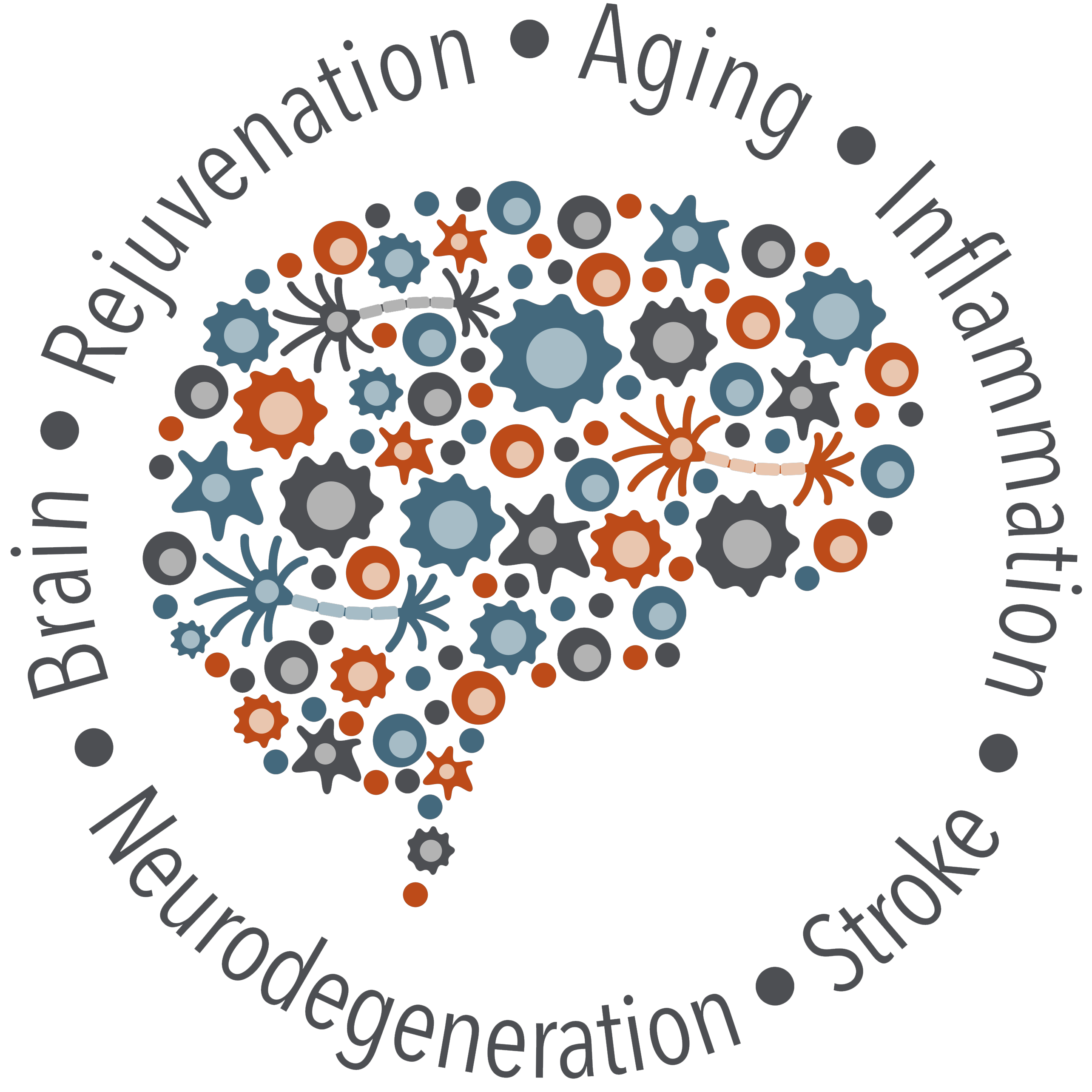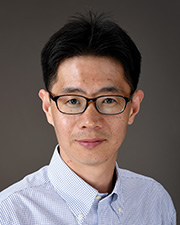Gab Seok Kim Lab


Gab Seok Kim, PhD – Assistant Professor
Education & Training
PhD Seoul National University – Seoul, South Korea
Areas of Interest
Clinical interests: Ischemic stroke, Alzheimer’s disease, and cerebral amyloid angiopathy (CAA)
Research interests: Neuroinflammation, interferon-stimulated genes (ISGs), reactive oxygen species (ROS) generation, secondary thalamic injury, signal transduction following brain injury, intercellular crosstalk in the brain, angiogenesis, and drug discovery.
Research & Experience
We are investigating the role of interferon signaling and reactive oxygen species following stroke, as well as signal transduction in cerebrovascular diseases. Current research focuses on understanding the molecular and cellular changes, such as neuroinflammation and neurodegeneration, that occur in the brain after stroke and in other neurodegenerative diseases, particularly how interferon signaling contributes to functional outcomes in stroke. To address this, we utilize in vivo animal stroke models with unique knockout, transgenic, and reporter mice, along with in vitro primary cell models and tools to modulate neuroinflammation.
The Kim Lab’s current research focuses on exploring novel mechanisms that control microglial functions, including pro-inflammatory responses, microglial phagocytosis, and reactive oxygen species (ROS) generation in aged brains, Alzheimer’s disease (AD), and other diseased states. This work builds on our recent identification of novel gene expression signatures from a scRNA-seq dataset of young and aged mice following stroke. Recently, we discovered an interferon-related gene that is highly upregulated in activated microglia and other cells in aged brains after stroke. We hypothesize that this gene (or its product) has significant potential to initiate neurodegeneration and neuroinflammation by modifying microglial functions in stroke and AD. We are currently investigating how other interferon-related gene products regulate blood-brain barrier integrity, immune cell infiltration into the brain, and subsequent gliosis, which leads to white and gray matter injury in the cortex and thalamus following stroke and in AD brains. We believe that the gene identified in our lab may contribute to the evolution of neuroinflammation in post-stroke brains, potentially expanding infarction. Our lab also utilizes scRNA-seq/RNA-seq datasets to identify novel genes and elucidate differentially expressed genes in various cell clusters in aged and post-ischemic brains. We are particularly interested in studying sex differences in cell-to-cell communication using scRNA-seq datasets. Our ultimate goal is to find interventions (e.g., small molecules or antibodies) to reduce brain injury, improve functional outcomes, and halt progressive amyloid pathology by targeting microglial-derived molecules in the acute or sub-acute phases of stroke or AD/CAA.
 Sodam Kim, PhD – Postdoctoral Research Fellow
Sodam Kim, PhD – Postdoctoral Research Fellow
Education & Training
MS Pharmacy, Sookmyung Women’s University – Seoul, South Korea (2017)
PhD Pharmacy, Sookmyung Women’s University – Seoul, South Korea (2021)
Areas of Interests
Clinical interests: Identification of biomarker and therapeutic drug for ischemic stroke
Research interests: Neuroinflammation and systemic inflammation following ischemic stroke, immune response with aging, evaluation the estrogenic and pharmacological properties of plant extract
Research & Experience
My previous research focused on the evaluation the estrogenic properties and neuroprotective activity of plant extract and its components in relevant preclinical models. I observed that extract and its components with estrogenic properties exhibited antioxidant activity by increasing neuroglobin levels in ischemic stroke mouse model.
I was also involved in another research that focused on identifying the immune responses in periphery and brain on aged and ischemic stroke mouse models. I studied the changes in immune cells from the acute to the chronic phases after stroke, and discovered the dramatic changes in immune cells with aging.
My current research focuses on the understanding the understanding the regulatory protein of neuroinflammation after stroke and aims to identify the binding partners and inhibitory molecules. Additionally, I would like to evaluate how connect with and impact on other cell types under pro-inflammatory conditions.
Hobbies & Interests
Photography, cooking, creative writing, reading detective novels, and spending time with friends.
Research Assistants
 Haven Burrous
Haven Burrous Darby Wolocko
Darby Wolocko